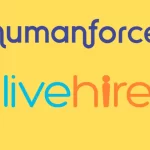Offering solutions for numerous problems related to integration, efficiency, scalability, cross-platform compatibility, and communication in modern software, Full-stack is the most happening field in software development right now. According to the U.S. Bureau of Labor Statistics, Full-stack development projects a growth of 27% by 2024, making it a fast-growing tech field. As the EdTech industry expands its wings, full-stack development is poised to play a pivotal role in shaping its future.
Trends in Full-Stack Development for EdTech
Personalized Learning Experiences
Full stack web development is making a major move by catering adaptive learning to students by considering their learning potential. By combining frontend and backend technologies, full-stack is building systems that can access students’ progress, enhancing engagement, motivation, and learning.
Integration of AI/ML
AI and ML are revolutionizing the EdTech space by providing students with personalized learning paths. Mock interviews and tests are made available for students with an AI proctor who analyzes and offers quick and effective feedback on their performance.
Mobile-First Learning
The increasing use of mobile phones made learning easy and accessible for everyone. Full-stack web developers create responsive and cross-platform applications to ensure a smooth learning experience.
Virtual & Augmented Reality
VR and AR allow students to gain hands-on experience while learning. Full-stack web developers are responsible for integrating these technologies into the EdTech space, as it involves user interface and server-side operations.
Opportunities for Full-Stack Developers in EdTech
Developing Learning Platforms
The EdTech industry requires robust and scalable platforms to handle large amounts of educational content. Full-stack web developers who master this skill can have a pool of opportunities in the EdTech space.
Contributing to Open-source projects
Learning should be democratic, and the curve of open-source initiatives in the EdTech space is constantly growing. Full-stack web developers can contribute to these projects, which helps them network with like-minded individuals and find the right opportunities.
Collaboration with Educators & Designers
Full stack web developers have the opportunity to network and collaborate with educators and designers in the industry. With a deep understanding of technical aspects and user experience, full-stack development involves creating engaging learning platforms that cater to real-world educational needs.
Conclusion
Opportunities for full-stack web developers in EdTech have been exponentially increasing over the years. Full-stack web developers who can integrate emerging technologies like AI, VR/AR, and responsive, engaging learning platforms will have a competitive edge over those people following traditional methods of implementation. Full-stack developers will remain at the heart of EdTech’s digital transformation, creating innovative, scalable, and user-centric educational tools that empower educators and learners alike. For developers, this represents an exciting opportunity to be a part of an industry that is shaping the future of education on a global scale.


